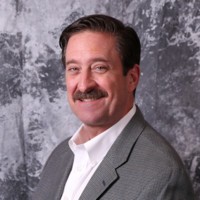I just finished reading a book called the Art and Science of Communications by P.S. Perkins. In her first chapter, she speaks of “Intra-personal” communications. That is, what we say to ourselves and the effect that has on our days and our lives. I also just finished 8 hours of Sales Training where the trainer spoke of the roles that our beliefs have on our success or failure in the deal. It’s funny how synchronicity works.
I have been giving some thought to this recently and the specifically how we can never achieve a certain level of success until we reach it in our own mind. As Earl Nightingale used to say, “We become what we think about most”. So what does that mean? It means that in order to own it in the world we have to own it in our head first; whether it is a car, a home, a path to success.
Well, ask yourself, “How will my day go if I get up and immediately start grousing about how much I don’t want to go to work?” How does that contrast to the feeling you get when you get up and say, “I can’t wait to get to work and get started?’ It makes a difference.
I can remember my second job in sales. (I had not done very well in my first job). They had me read books on enthusiasm and how to dress for success. They gave me books on selling, teamwork and closing. And, by the time I hit the street, I had a different belief about how I felt about myself as a sales man. Because I had been reading about success, the power of enthusiasm and belief, it was as if I had a tape loop playing in my head saying:
“I am a great sales person”
“I am in rapport with my buyers”
“I know how to sell this”
“People are waiting to buy my service”
The result was that the level of success in my career changed in a manner that was Equivalent to my Mental Attitude. I began to make sales and in fact became one of the star performers as the youngest sales exec in the company.
So what do we want to do as achievers and producers? I have been listening to the Anthony Robbins “Get the Edge” tape series at the gym recently. In it, he makes a couple of relevant points.
1. As we move through the day, we can use affirmations. He calls them incantations. We can say to ourselves things like:
a. All I need is within me now
b. All the joy I need is within me now
c. I am a great sales person
d. I am a great student
I think you get the idea. As we say these things, over and over again to ourselves, our subconscious mind takes hold of these thoughts and internalizes them so that we begin to behave in ways that are congruent with these new beliefs. If you want to multiply the affect add the reasons why you are: a great sales person, etc. maybe like:
– Because I am not afraid of “NO”.
– I am willing to prospect and cold call
– Because i listen and understand the buyer before I close
2. The second point he makes is that part of what separates people with high standards from those with less than high standards is their peer group. That’s right; just like we become what we think about most, what we think about most is highly influenced by our peer group. If our peers keep raising the bar, we will chase it. If they lower the bar, in most cases, we will follow the bar. Most of us want to be comfortable more than we want success.
Where do you want to go? What do you want to achieve?
– Become aware of what you are saying to yourself about your performance (at school, on the job and in relationship.
– Choose to modify those beliefs you think can change your life. Then through affirmations start changing your internal dialog.
– Examine your peer group (Let me expand this a little to include not only the people you hang out with but the books you read, the TV you watch, and the sites you surf).







